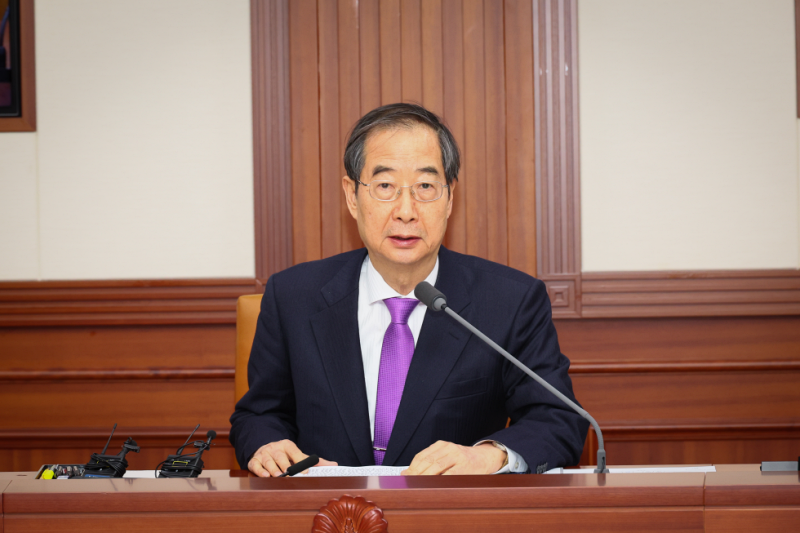
Prime Minister Han Duck-soo on April 5 speaks at a policy coordination meeting held at Government Complex-Seoul in the capital's Jongno-gu District. (Office of the Prime Minister)
By Park Hye Ri
Prime Minister Han Duck-soo on April 7 pledged government investment of KRW 450 trillion to cut greenhouse gas emissions in the country and raise the green competitiveness of domestic industry and society as a whole.
"I received a welcoming report," he wrote on his Facebook page. "Korea was expected to have slashed its carbon emissions in 2022 and last year to the level of 2010."
On the same day, the Ministry of Environment and Presidential Commission on Carbon Neutrality and Green Growth announced the results of a study on domestic CO2 emissions, power generation by source and production volume of major industries from 2018 through last year.
The report said such emissions last year reached about 204 million tons, down 4.8% from 2022 and a decrease of 24.1% from 2018, the inaugural year of carbon reduction.
"Korea's GDP in 2010 was KRW 1,427 trillion and KRW 1,996 trillion last year," he said. "The economy has grown 40% over that time but the accelerated reduction of CO2 emissions has been shown in all sectors."
"There were times when CO2 emissions temporarily declined due to exceptional situations like a global economic crisis or pandemic, but this didn't set a sustainable trend," he added. "I want to stress the significance of the substantial reduction in such emissions thanks to the efforts of both the public and private sectors during peacetime."
"The Yoon administration is striving to devise feasible and practical measures instead of those excessively idealistic and theoretical that our industries cannot apply in their sectors, as well as back the public and private sectors to jointly take action," he said, citing as examples revival of nuclear power plants and adjustment of the proportion of the use of new and renewable energy to more realistic levels.
"By 2030, we must reduce CO2 emissions up to 40% of 2018 levels," the prime minister said. "We will ensure meticulous attention to detail to achieve greater success in reducing such emissions and further raise international evaluations of our progress."
hrhr@korea.kr